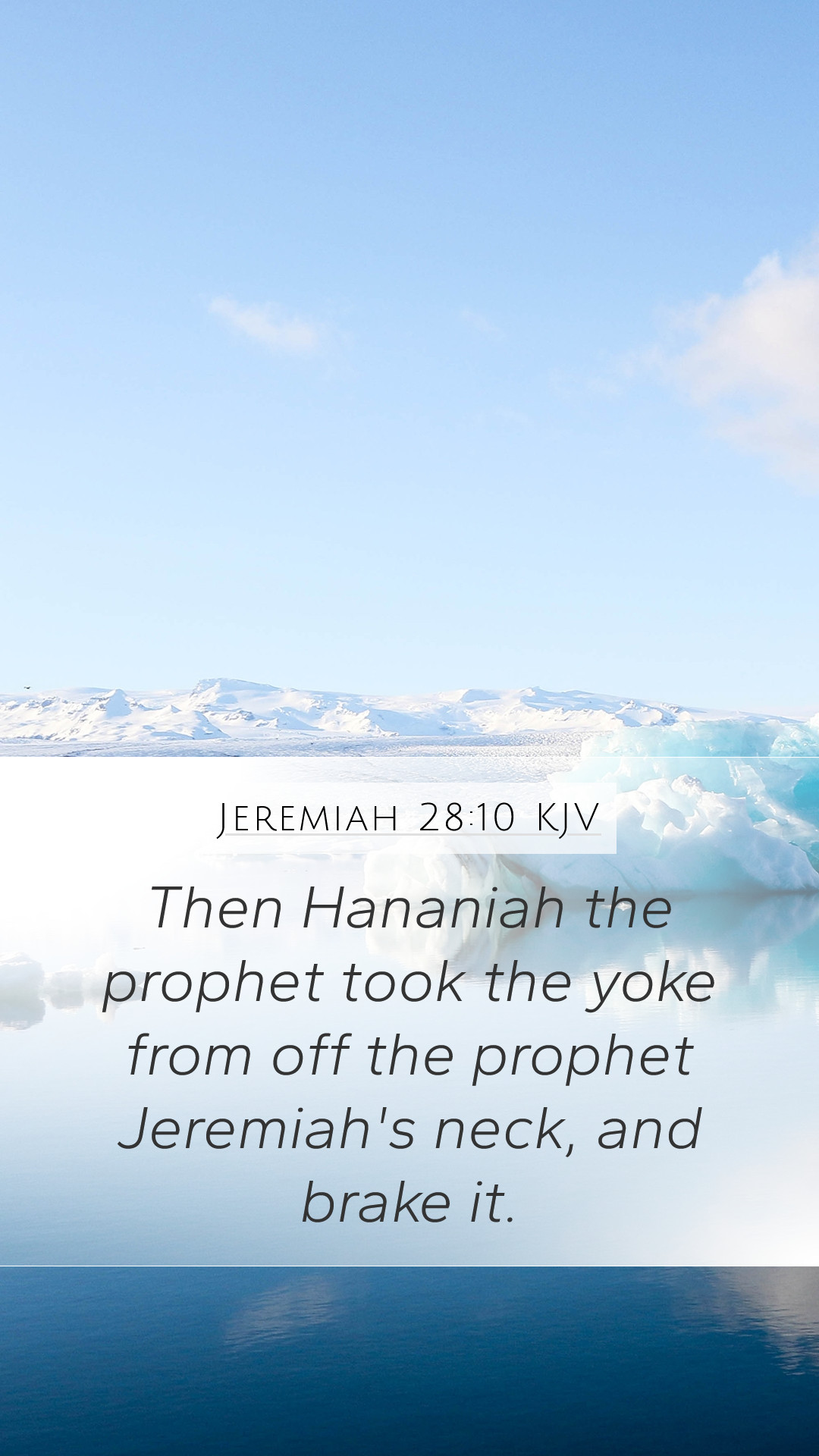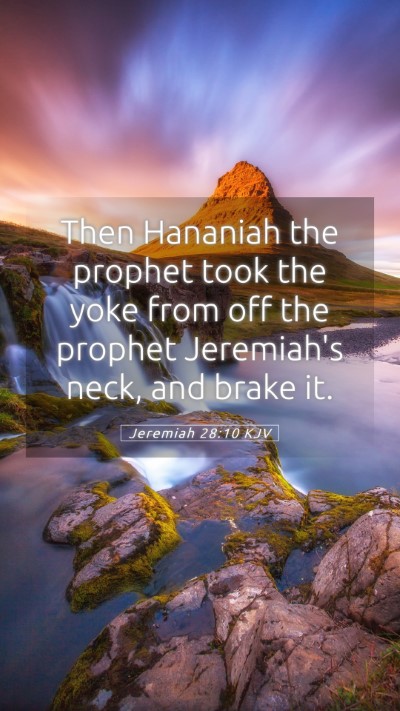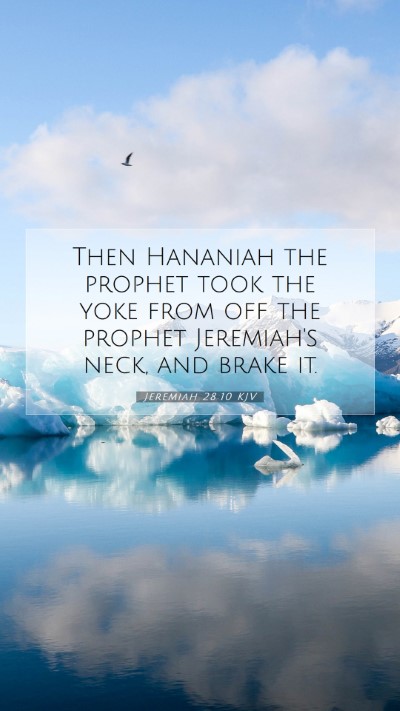Understanding Jeremiah 28:10
In the context of biblical exegesis, Jeremiah 28:10 is a significant verse that provides insight into the events surrounding the prophet Jeremiah and the false prophet Hananiah. This verse states:
"Then Hananiah the prophet took the yoke off the prophet Jeremiah's neck and broke it."
Bible Verse Meaning and Interpretation
To appropriately understand the meaning of this Bible verse, we can draw insights from renowned public domain commentaries including those by Matthew Henry, Albert Barnes, and Adam Clarke.
Contextual Background
The narrative in Jeremiah 28 unfolds against the backdrop of Judah's impending doom due to its unfaithfulness to God. The prophet Jeremiah had been prophesying about the Babylonian captivity, warning the people to repent and return to God. In stark contrast, Hananiah, a false prophet, claimed that God would break the yoke of Babylon and restore Judah within two years.
Verse Analysis
- Matthew Henry’s Commentary: Henry emphasizes the symbolic nature of the yoke worn by Jeremiah, representing the burden of God's judgment on the nation. By breaking the yoke, Hananiah attempted to undermine Jeremiah's authority and the truth of God's message.
- Albert Barnes’ Commentary: Barnes explains that the act of breaking the yoke not only signified rebellion against God’s decree but also the false hope that Hananiah offered the people. This act would lead to further consequences for the nation.
- Adam Clarke’s Commentary: Clarke suggests that the prophet’s actions were arrogant and dangerous, as they falsely portrayed God’s intentions. He highlights the seriousness of misleading God's people, which ultimately leads to destruction and confusion.
Theological Implications
This incident illustrates the struggle between true and false prophecy, which is a recurring theme throughout the Scriptures. It teaches us about discernment in spiritual matters and the importance of following God's truth over the comforting lies of false prophets.
Application in Bible Study Groups
Jeremiah 28:10 serves as a crucial text for Bible study groups interested in discussing the nature of prophecy, the consequences of leading others astray, and the importance of adhering to God's Word. Engaging with this verse can enhance understanding of difficult Bible passages and encourage more profound study insights.
Practical Applications
- Assessing the influence of modern-day prophets and teachers against the truth of Scripture.
- Encouraging discussions around the significance of humility and obedience to God’s will.
- Exploring how to apply biblical teachings to daily life while navigating false narratives.
Bible Cross References
- Jeremiah 27:12-15 - Jeremiah’s original prophecy concerning the yoke.
- Deuteronomy 18:20-22 - Guidelines for discerning true prophets.
- Matthew 7:15-20 - A warning against false prophets and their signs.
Conclusion
In summary, Jeremiah 28:10 vividly illustrates the struggle between true divine revelation and false prophecy. Studying this verse, alongside the insights from public domain commentaries, deepens our understanding of Scripture and enhances our ability to apply biblical lessons to our lives. By investing in such Bible study resources, we foster a more profound comprehension of God's Word, equipping ourselves to discern the truth and engage meaningfully with our faith.


